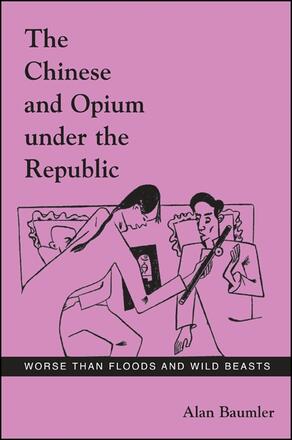
The Chinese and Opium under the Republic
Worse than Floods and Wild Beasts
Alternative formats available from:
Examines China’s attempts to control the opium economy in the early twentieth century.
Description
In the nineteenth century, opium smoking was common throughout China and regarded as a vice no different from any other: pleasurable, potentially dangerous, but not a threat to destroy the nation and the race, and often profitable to the state and individuals. Once Western concepts of addiction came to China in the twentieth century, however, opium came to be seen as a problem "worse than floods and wild beasts." In this book, Alan Baumler examines how Chinese reformers convinced the people and the state that eliminating opium was one of the crucial tasks facing the new Chinese nation. He analyzes the process by which the government borrowed international models of drug control and modern ideas of citizenship and combined them into a program that successfully transformed opium from a major part of China's political economy to an ordinary social problem.
Alan Baumler is Associate Professor of History at Indiana University of Pennsylvania and editor of Modern China and Opium: A Reader.
Reviews
"In his localized examination of the issue, Baumler has shown the direction future research should take." — China Perspectives
"This is an important addition to the literature, contributing not only to our knowledge of the opium issue in particular, but also, more broadly, to the entire history of nation building in modern China. Baumler spends much of the work discussing the political discourse about opium, which is as crucial as the opium trade itself. The strongest feature of his work is that he stands outside of the dialogue and examines it with an objective eye. So much of the discussion about drugs is morally charged that it is difficult to do so, but Baumler is able to show how this discourse developed. Reading this book forces one to make constant reference to our own War on Drugs and 'Just Say No' campaigns." — Parks M. Coble, author of Chinese Capitalists in Japan's New Order: The Occupied Lower Yangzi, 1937–1945
"This work has the potential to significantly revise some very commonly held misconceptions of modern Chinese history." — Michael Tsin, author of Nation, Governance, and Modernity in China: Canton, 1900–1927